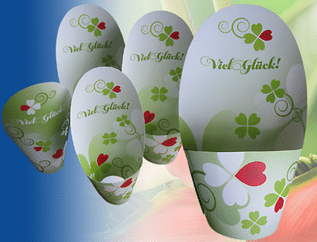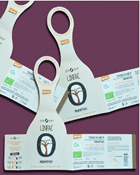Ston2Pack - An alternative to pulp-based paper
It is important for the paper industry to seek new options. Stone Paper is a concept, which might break the clutter. In a conversation with Mayur Umbratkar, founder of Ston2Pack, Mansi Gupta tries to understand what stone paper is
29 Jun 2022 | 1942 Views | By Mansi Gupta
MG: When did you decide to start Ston2Pack?
MU: The packaging industry is an interesting field with a lot to learn. We graduated as packaging engineers with an aim to contribute to the industry. While doing our research, we read about paper being made from stone. This caught our attention. The next steps involved learning about stone paper, its processing, post-production, print technologies and environmental factors. That’s when we decided to start Ston2Pack.
MG: Tell us about your company.
MU: Ston2Pack is all about a stone to packaging. Stone paper has been around for some time, but has not been incorporated into the Indian market.
MG: Why so?
MU: People have limited information on this subject and that’s when we sensed a gap. Also, we realised that there are very few companies that manufacture the same.
MG: Is that how your team decided to introduce stone paper in the Indian paper industry?
MU: Due to the limited options available in the market, the majority of the paper industry relies on pulp-based paper products. Given the market revival in the post-pandemic phase, there has been a huge demand for paper. But the increase in rates of raw material has caused a tough time for the pulp and paper industry. That is the main reason to incorporate stone paper into the Indian paper industry.
MG: What is the advantage?
MU: With stone paper, companies might see stability in their supply chain. With the added benefit of not changing a single process in production and post-production operations, stone paper stands out.

Wrappers made from stone paper
MG: What is the biggest challenge?
MU: We have realised that people have limited information on this subject and that’s when we sensed a gap with various vendors. We aim to educate more people about it.
MG: What is the market situation for stone paper?
MU: The stone paper market is positively influenced by the growth in the packaging and stationery industry, thanks to the expanding need for high-quality and efficient labelling.
MG: In what way?
MU: According to the estimates by the IMARC Group, the global stone paper market is expected to exhibit a CAGR of 4.2% during the period 2022-2027.
MG: Who guided you in your journey?
MU: Taiwan Lung Meng Technology patented this technology. We were able to connect with their team and get an in-depth understanding of the subject. They have done years of R&D in this field. We have partnered with them for operations in India.
MG: What are the advantages of stone paper?
MU: Stone paper is originally white and does not require any further bleaching process. It has a high density, which helps retain its shape over time. Also, stone paper is waterproof, resistant to grease, insect-proof and washable. The stone paper feels like coated paper and has a very fine and smooth surface. The biggest advantage is that it can be recycled up to 98-100% and reduces dependency on fossil-based plastics.
MG: Is the paper degradable?
MU: Stone paper is 100% photo-degradable. Photo-degradation takes place when you throw out stone paper in open lands, usually, it takes around 1-2 years to degrade completely. Recent
developments with stone paper show that it can biodegrade as well.
MG: Does the decomposition harm the soil?
MU: It provides a rich content of CaCO3. Calcium carbonate remains in powder form and does not harm the soil. It reduces the acidic nature of the soil.
MG: What are its packaging applications?
MU: Stone paper can be used for wrapping as well as as a protective layer. It is safe to use and can be used for healthcare applications. Biodegradable stone paper is one of the developments that has happened recently, making it one of the best sustainable options. The corrugated stone board is a new product, which was developed recently.
MG: What is the composition of stone paper?
MU: Stone paper basically contains naturally available calcium carbonate (CaCO3) as its main ingredient and pure PE resin as a binder. The composition can differ according to the end-use of paper. Commonly it is 80%-20%, but it can be 85-15% in some applications and in some applications, it can be 70-30%. So, depending upon end-use, stone paper is made differently.

Tags made from stone pack
MG: Is it true for flexible packaging applications, too?
MU: The composition changes the end properties of stone paper. The raw material composition used in the stone paper for the flexible packaging (heat sealable application) is different from that of S-Eco or S-board series applications.
MG: How did your team cope with the high prices?
MU: The pandemic has caused a major shift in the paper industry. There is a huge surge in the rates due to the low supply of stock. We are looking into stabilising our supply chain to tackle the growing market prices and setting foot into the market.
MG: What are the limitations of the paper-based packaging industry when it comes to sustainability?
MU: Though pulp paper can be reused, it has certain limitations. The strength of the paper plays an important role in deciding whether it can be reused or not. Recycling pulp-based paper always tends to reduce the quality and strength over a period of time.
MG: What is your goal with stone paper in the printing and packaging industry?
MU: Our goal is to educate people about stone paper and how it helps to create a holistic approach towards replacing virgin paper. We aim to create a sustainable option ecosystem in the printing and packaging industry through the usage of stone paper.n